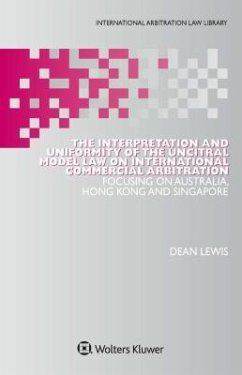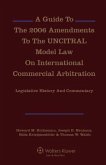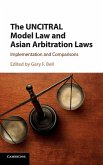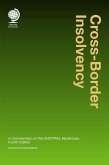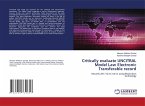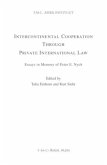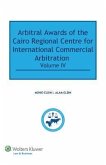Numerous jurisdictions worldwide have augmented their ratification of the New York Convention of 1958 with the UNCITRAL Model Law 1985 (UML), which takes a giant step forward toward global uniformity in legal application and understanding of the arbitration process. This book develops a standard or benchmark for the UML objective of uniformity, using the relevant legislation and case law of Hong Kong, Singapore, and Australia to consider whether a uniform approach to implementation of the UML and its interpretation is being achieved across those jurisdictions. The author's methodological tools are eminently adaptable to other jurisdictions. Given the importance of the ability to set aside an arbitral award, the body of case law on setting aside and the directly related area of enforcement, the emphasis throughout is on Article 34. In addition, the study considers: * - the meaning of uniformity in law and in the context of the UML; * - the correct approach to interpretation of the UML pre and post Article 2A; * - the interpretational relationship between the UML and the Convention on Contracts for the International Sale of Goods (CISG); * - the relationship between the UML and the New York Convention; * - the degree of textual uniformity of Article 34 with the three jurisdictions focused on; and * - the degree of applied uniformity of Article 34 both in terms of juristic methodology and similarity of results. The author, with more than thirty years of practice in the field of commercial arbitration in Hong Kong, has had access to voluminous cases spanning decades and brings his specialist expertise to the subject. This book considers whether the UML has succeeded in its aim of achieving uniformity. It serves as a guide, both academic and practical, to exploring and adopting the correct approach to the interpretation of the UML as well as to the method of classification of court decisions under the UML. This study is of immeasurable academic and practical value.
Hinweis: Dieser Artikel kann nur an eine deutsche Lieferadresse ausgeliefert werden.
Hinweis: Dieser Artikel kann nur an eine deutsche Lieferadresse ausgeliefert werden.

